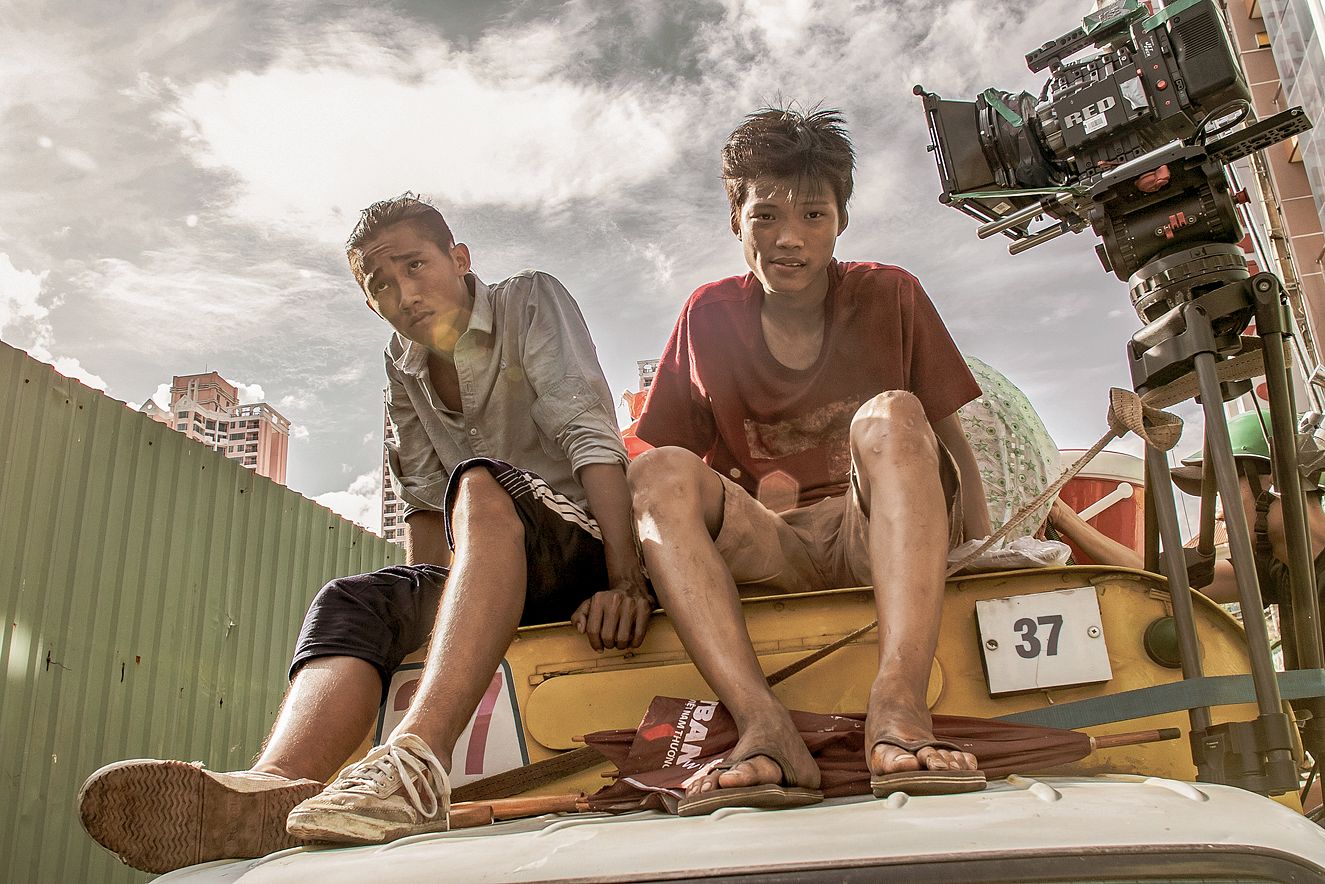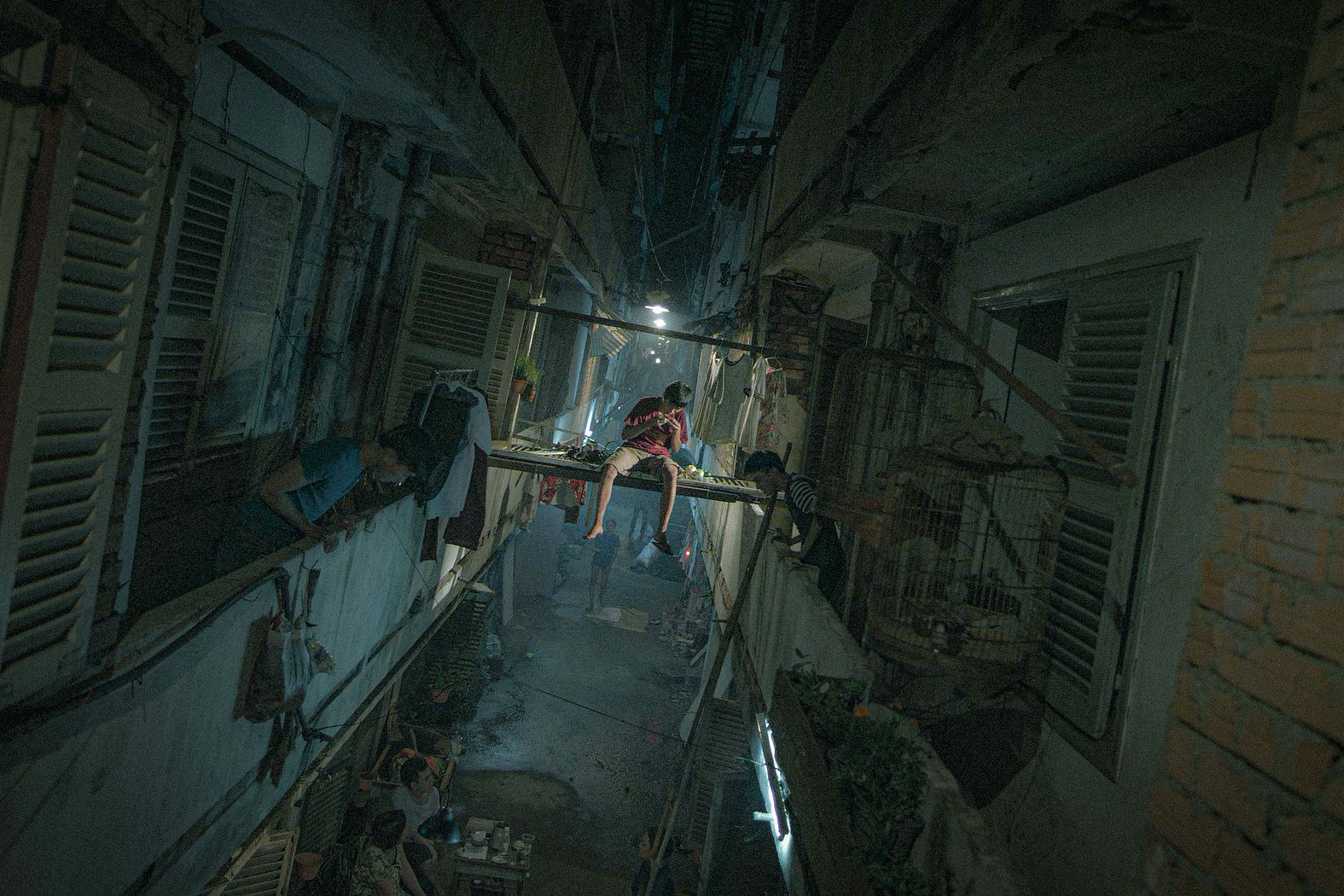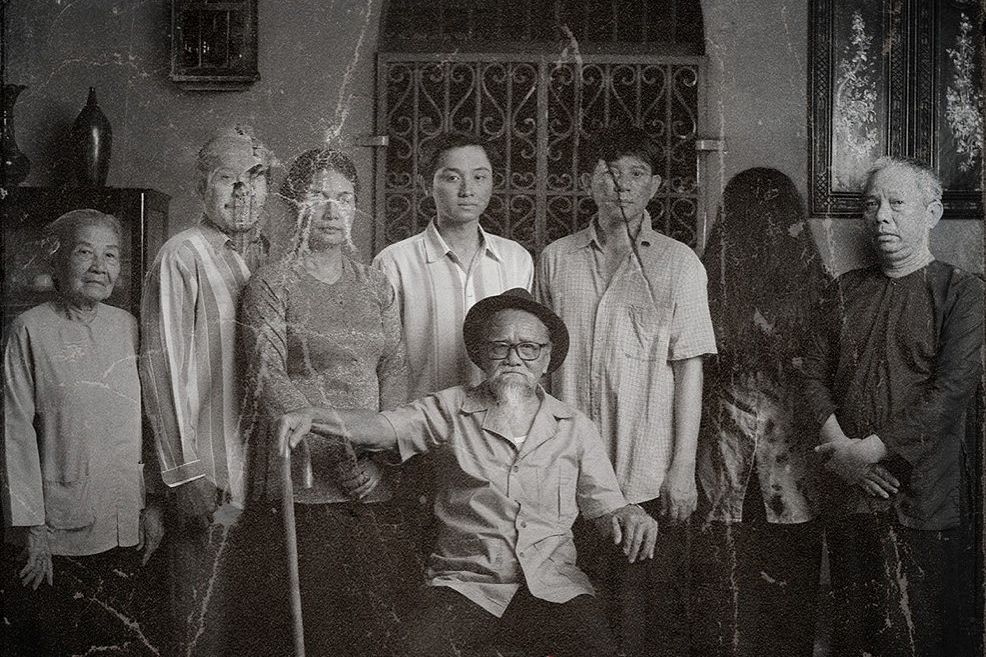I stepped out of the theater after watching Ròm with a heaviness weighing down my shoulders. It was, however, a refreshing feeling that one rarely experiences after a Vietnamese feature film these days.
This review contains major spoilers for Ròm.
It’s impossible to discuss Ròm without mentioning the many hurdles the movie production has faced right from the ideation stage until the moment it hit theaters. Ròm started generating moderate internet buzz as early as October last year when it clinched the coveted New Currents award at the Busan International Film Festival (BIFF), the very first time a Vietnamese film was bestowed with the honor.
At home, congratulations were entangled with news of the movie crew facing censure from cinema authorities for submitting their brainchild to the film competition without a distribution license. The film version screened at BIFF was ordered to be destroyed with the production company being fined VND40 million, both pessimistic signs at the time hinting that local viewers might never get to watch the award-winning work in theaters. Still, the hardships only served to consolidate fans’ adoration towards the steely-eyed but vulnerable street kid protagonist, because who doesn’t love an underdog.
News of the movie’s official release in the country this year was met with gleeful response from netizens, even though that joy was short-lived in the age of coronavirus: waves of new infections began surfacing in Da Nang just days before the supposed premiere, prompting a delay until September. Which brings us back to now, a few weeks after Ròm hit theaters nationwide. So has the film lived up our collective anticipation?
Director Trần Thanh Huy created 16:30 as his graduation project. Video via YouTube channel Danet Vietnam.
Ròm is Vietnamese filmmaker Trần Thanh Huy’s directorial debut and is in many ways both a remake and spiritual successor of his short 16:30. Acting newbie Trần Anh Khoa plays the titular role Ròm in both the short and full-length films, from when he was still a kid to his awkward teenage years. In the short, Khoa’s character is unnamed, and viewers explore his world in flashes, shifting perspectives and vignettes as the street kids bounce across Saigon's alleys to deliver lottery result slips.
16:30 doesn’t offer a lot in terms of plot, but it showcases Huy’s knack for cinematography, a talent that he fully embraced in the poetic frames of Ròm. The feature film, however, has unfolded the limited glimpses of the characters, subject matter and social commentary found in the short into layers that are much more satisfying to experience.
Set in a squalid tenement for working-class Saigoneers, the movie revolves around số đề, an illegal gambling game that piggybacks on Vietnam’s official lottery operation. Players try to predict the last two digits of the winning lottery number that's announced every day in the late afternoon. Ròm and a gaggle of other street kids make money from selling lottery result slips and taking bets for số đề bookies as “runners.” They live on the generosity of winners and are berated or even beaten should the guesses turn awry. Số đề might sound simple on paper, but in Ròm, it’s a powerful puppeteer dictating every life decision, daily interaction, and at times, even whether someone lives or dies.
Some have compared Ròm to Bong Joon-ho’s Parasite in their examination of the life of people from lower rungs of our society, but I think the similarities stop there. Inter-class conflicts are front and center in Parasite, but, at least in its current iteration, Ròm does not delve into who the forces are behind the destitution plaguing its characters. Nonetheless, there are passing hints that could help us make educated guesses.
Most, if not all, of the apartment residents lost their house to creditors and engage in số đề in desperate hopes to change their fortune and take back their home. In one short scene, a group of suits are violently shooed away by the tenement folks after failing to persuade them to give up their households. Albeit highly dramatized in the movie, the narrative is a familiar one in Saigon, where old structures are often struck down by developers to make room for commercial complexes and shopping quarters catering to the middle class.

Image via IMDB.
In recent years, Vietnam has become home to Asia’s fastest-growing middle class, the presence of whom is most noticeable in Saigon, the main contributor to the country’s economic prosperity. Along streets, high-end sushi restaurants rub shoulders with supermarkets boasting the freshest fruits imported from Japan while international brands, luxury spas, and state-of-the-art gadgets commingle in shopping malls. Elsewhere in old apartments like 42 Nguyen Hue, owners furnish their enterprises with styles and trends that would appeal to middle-class tastes: afternoon high tea, Nordic furniture awash in shades of beige, and picturesque Instagram-friendly corners.
Ròm, on the other hand, doesn’t seek to pander to middle-class sensibilities. The film’s setting and characterization are unapologetically gritty right from start to finish. Ròm eats day-old bread and wears filthy rags, and when the plot calls for it, he wallows in empty tombs filled with trash and sludge, and even swims in murky river water. Apartment units in Ròm are messy, claustrophobic and wholly unfit to house quirky cafes.
The film’s hyper-realistic treatment of Saigon’s environs has spawned a number of negative reviews from certain audience members who find the setting “revolting” and hard to watch. Ròm's take-no-prisoners commitment to realism, on the contrary, is the most important quality contributing to its greatness and sets it apart from the current cinematic landscape where Saigon and its residents are often romanticized and sanitized in movies. To watch Ròm is to reckon with the reality that human beings are complex creatures occupying the grey region between good and bad and, when edged to the cliff, they would do anything to ensure survival no matter how heartless or even inhumane it is.

Phúc (Anh Tú Wilson) and Ròm (Trần Anh Khoa) are friends and rivals vying for the trust of the community. Photo via Phap Luat va Ban Doc.
As the story progresses and we get to know the life story of the characters, it becomes apparent that this community is a precarious house of cards held together by misplaced hopes and desperation. The residents, deep in debt and working menial jobs, have no means to improve their social mobility but putting their trust in số đề. Ròm, a homeless orphan, has a life mission to find his parents and has to make sure his neighbors continue to bet so he can earn a living. Ghi, Ròm's impoverished bookie, is no gambling magnate either: her son has cancer and the treatment relies on her earning. Everyone has been rendered powerless by their social station, so they resort to belief in the randomness of số đề hoping for a miracle.
Sometimes, their faith is rewarded. In one sequence, Ròm manages to guess the winning digits and the residents, who all follow his advice, erupt in gleeful celebration and throw a neighborhood party to revel. The lanky kid is heralded as a savior and becomes the trusted clairvoyant in the eyes of bettors. Unfortunately, because their lives are so tethered to the numbers, even while witnessing these moments of happiness, we couldn’t help but feel uneasy, because we know that the God of statistics might not always be so kind.
In the movie’s pre-climax, as predicted, we watch that fleeting moment of neighborly camaraderie and expression of humanity turn sour when Phúc, Ròm’s rival runner, fails to submit betting slips on time — which all bear yet another winning number. The mob brutally beats him and rushes to Ghi’s house to demand that she fork out their earnings. They tie Phúc and Ghi up and hold them captive in Ròm’s living quarters on the roof.
Even before this moral collapse, the dynamics between the neighbors were already fraught with cracks. Desperation drove Madame Ba, a street vendor and one of the oldest residents, to suicide, and the others waste no time in conducting a séance to seek her otherworldly advice on which number to bet on next.

Ghi (Cát Phượng) embodies the film's rare glimpse of kindness, though that unconditional care is short-lived. Photo via Phap Luat va Ban Doc.
The closest thing to kindness presented in Ròm is perhaps the semi-motherly relationship between little Ròm and Ghi. She cooks for him, helps him get medical attention, and even offers to assist in his search for his missing parents. She takes care of him without expecting anything in return, a far cry from the transactional world back at the apartment block. Therefore, it’s truly heartbreaking to see the dissolution of this final sliver of humanity in the movie when Ghi steals the money that Ròm puts aside for his quest to find his parents.
Watching Ròm is like boarding a roller coaster ride that keeps going downhill at full speed despite a few crests of hope in between. It will leave one emotionally drained, literally or figuratively weeping for the misery of a significant segment of your society, one that many of us have, intentionally or not, kept out of our mind and daily existence. This ability to wring out our heart and evoke strong feelings in us, however, is the mark of great art. In the case of Ròm, it’s a stark, brutally brazen exploration of the lowest depths of the human condition, done with artful cinematic finesse and dedication.
When news of Ròm’s BIFF win first came out, Variety quoted British director Mike Figgis, head of the New Currents jury, as saying that “the use of real, live locations” in Ròm “impressed the jury greatly and that the ending was very satisfying.” It’s public knowledge now that the film's public release version differs from its award-winning predecessor, and this comment affirms it, because the ending that I watched was nowhere near satisfying.
Up until the climactic hellfire, Ròm has proven to be a sterling work of Vietnamese cinema that keeps me engrossed and emotionally invested — it completely lives up to the hype. But after that, the film devolves into a patchy, incoherent, inconsistent disappointment of a finish. Right after the inferno set by Ròm, the film cuts straight to...a Lambretta-top intimate bonding session between Ròm and Phúc, who were literally archenemies just a few minutes ago. What happens to the residents of the apartment and the building itself? Why did the loan shark manipulate Ròm into starting the fire? Why is Ròm not dealing with the moral weight of a reckless, albeit somewhat justified, decision that could possibly kill dozens of people and render others homeless and penniless?

Wowy leads a gang of loan sharks antagonizing Phúc and the tenement residents. Photo via Phap Luat va Ban Doc.
At one point after the heart-to-heart, Ròm realized that Phúc has tricked him once again to steal his hard-earned money, and the teenagers embark on a geographically impossible chase around Saigon, which culminates in a mano a mano scuffle on a train track over the wad of cash. But, hold on, what money is this since Ghi stole it a few scenes earlier?
I am not against open endings: Ròm’s return to the patch of wall where he was abandoned and the subsequent bus he boards in hopes of finding his parents at the end are fitting events, but everything else remains too vague for comfort. Apart from these narrative gaps, the acting, score, cinematography and film editing are all deserving of praise. Trần Anh Khoa shows promising acting chops as the agile Ròm, especially through his very emotive eyes. Rapper Wowy is wickedly frightening as a loan shark, though, without clear motivations, at times the character seems villainous just for the sake of the movie having an antagonist.
At the end of the day, it’s not a secret that Ròm struggled with censorship, and perhaps the flaws are the inevitable trade-offs for being able to hit theaters at all. Having followed the crew’s journey with the movie through the interviews they did, I have faith that they, at some point, produced a version of Ròm's story that completely does it justice, even though we don’t get to watch it. Still, as it is right now, the film is a cut above many local features in the market, clearly demonstrating a conscientious effort to create distinctly Vietnam stories that are just as grappling and important as international blockbusters.















